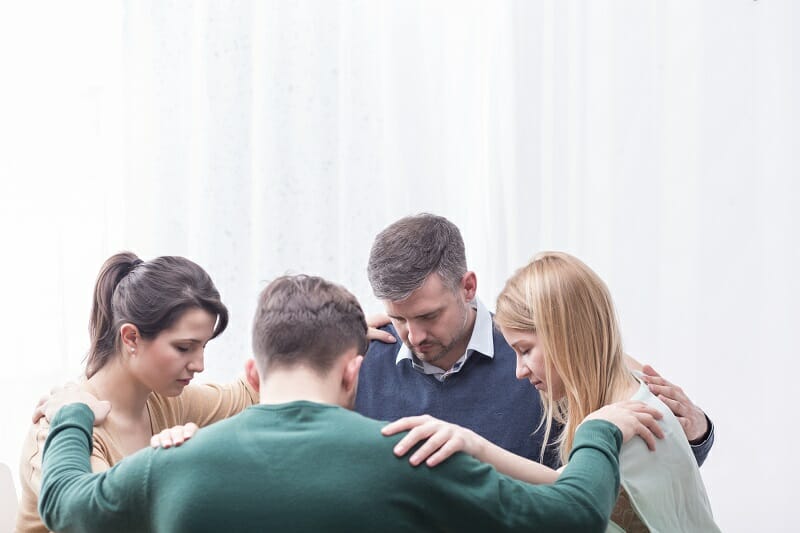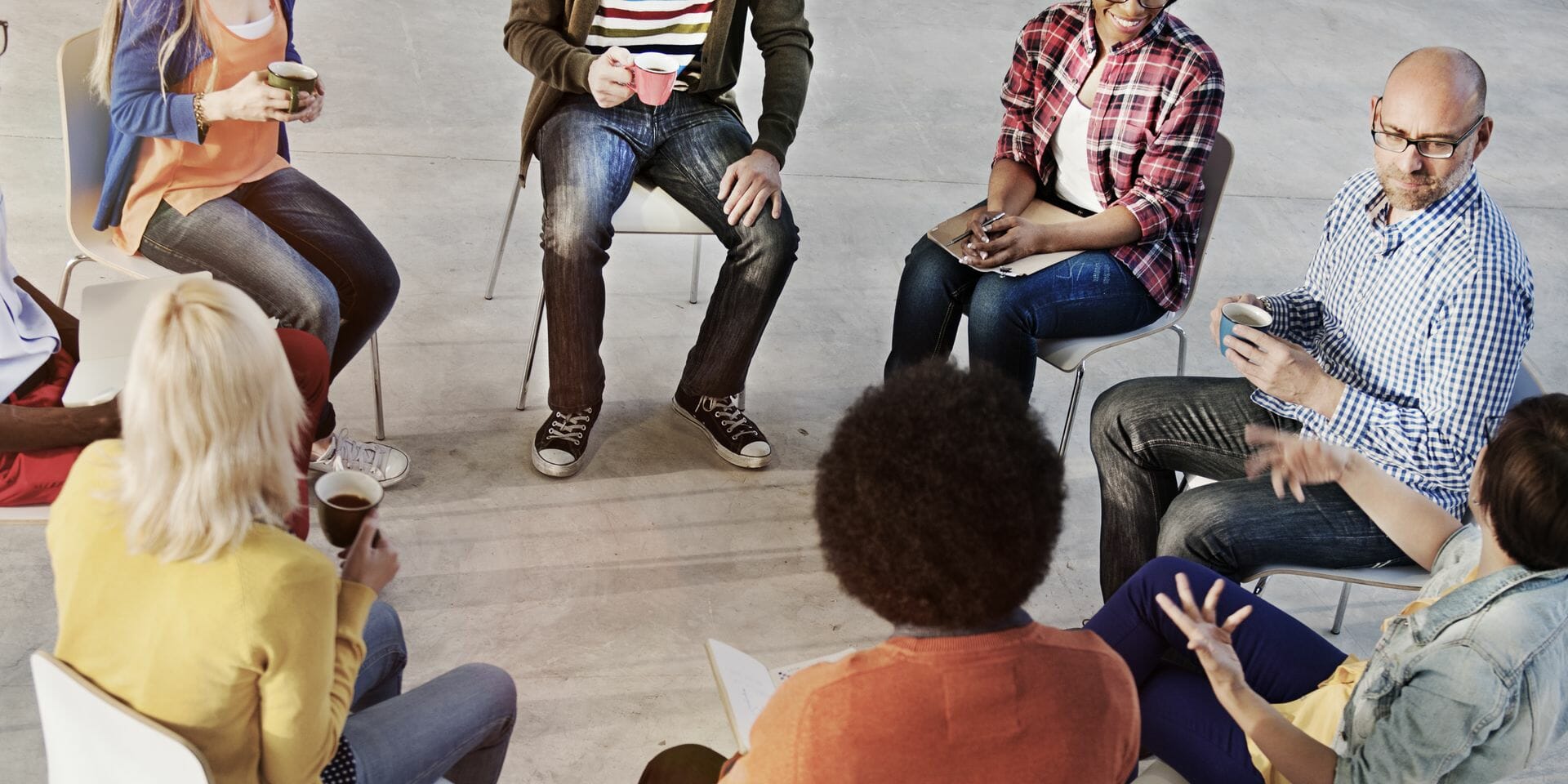What Is a Sober Companion?
After receiving addiction treatment in a residential rehabilitation facility, the next step is to re-enter everyday life. For many patients, doing this alone is a stressful prospect as they are thrown back into the same environment in which they had experienced substance dependence, such as to drugs or alcohol. Sober companions are implemented to ease this difficult transition and support those who have just completed their treatment as they rebuild their lives. (1) In most cases, a sober companion will go home with a client of a rehab service and live with them, as a flatmate, for a specified period. During this time, they will encourage sobriety, offer emotional and psychological support and help to prevent relapses.
(1) Sober companions also provide physical support to those recovering from addiction, including taking alcohol and drugs away and searching the home for any leftover hidden staches, from before the rehab stay, to ensure they remain sober.
(2)The emotional and physical support offered by sober companions aims to make relapsing significantly harder by boosting the motivation to remain clean and increasing the acknowledgement of accountability. In essence, a sober companion acts as a confidant and a support system for those recovering from drug and alcohol abuse.

What Can Sober Companions Help With?
There are many things that sober companions can help with, and the use of sober companions can help speed up the recovery process. For example, sober companions usually help to prepare living situations for a sober life and ensure there are no substances in the vicinity.
Additionally, a sober companion can take responsibility for transporting those in recovery to and from appointments, encourage the development of a positive and supportive network and help plan healthy eating and sleeping routines. (2)
Sober companions also help drug rehabilitation clients with socialising. Sober companions and those who have recently completed a rehab programme spend large amounts of time together and often form genuine friendships. Accountability is a key element in staying sober, and these bonds can help feel like the sober companion is reliable and a strong pillar for a successful recovery, which is a motivating factor in substance abuse recovery.
How Long Does a Sober Companion Relationship Last?
The process of drug rehabilitation and alcoholism recovery and the length of time it takes will differ from person to person.
Therefore, there is no set time that a sober companion relationship will last. On average, live-in sober companions will stay for four to six weeks, (1) although this is not a strict rule. Many sober companions continue to help those recovering from addiction for longer.
The role of sober companions is not only to prevent relapses but also to provide emotional support. Therefore, those who have just recently “graduated” from an addiction programme and sober companions often become friends. In these circumstances, the friendship can move beyond an official arrangement and can last a lifetime.
In the case of on-call sober companions who do not live with clients of a rehab service, the official arrangement often lasts much longer than four weeks and can continue for an unlimited length of time.
Who Could Benefit from Having a Sober Companion?
Every person is different, and therefore their needs vary. Only they and their professional healthcare team know whether a sober companion is the best option. However, some are more likely to require a sober companion than others, such as those with a history of relapses.
People in recovery, who are also suffering from mental illness, often benefit greatly from having a sober companion. This is because of the emotional and psychological support that sober companions provide. Sober companions are a fundamental part of a working support system, which is even more important for those who suffer from mental health conditions.
Additionally, many people who have been treated for substance abuse are either living with or in close contact with others who are still using drugs or abusing alcohol. Sober companions are essential for those who are still surrounded by substance abuse, particularly if they are living with drug users.
What to Expect from a Sober Companion

What to expect from a sober companion will depend on the type of companionship arrangement, as live-in companions are more involved than escort-based companions. However, all sober companions have the shared goal of helping maintain sobriety and avoid relapses.
Many sober companions have experienced addiction, recovery and sobriety, as many have recovered from substance abuse themselves. This experience means they know how to keep on the path of sobriety because they have been in the same position.
All sober companions will encourage those in recovery to maintain the healthy habits they have learned during drug rehabilitation, monitor if those suffering from an addiction associate with any drug or alcohol providers and ensure there are no alcohol or drug-related substances in their home environment. These services are in addition to the emotional support they offer.
Sober Companion and Addiction Treatment
Sober companions are an additional recovery and rehabilitation tool used during the outpatient recovery phase of substance addiction treatment. Outpatient addiction treatment is less restrictive than other forms of inpatient treatment and allows people suffering from an addiction to live independently or in a sober housing facility. Living independently is the end goal of all rehabilitation programs, although initially it can be a difficult process and leaving inpatient treatment can in some cases lead to relapse.
To ensure the transition to independent outpatient life is as easy as possible, sober companions are often utilised. Sober companion relationships are not an alternative to addiction treatment and behavioural therapy but rather an additional tool to help those in recovery to put the new tactics and habits they have learned into practice.
Many sober companions have also experienced addiction treatment themselves and therefore can provide a level of knowledge and insight that friends and members of the family cannot offer. This type of mutual understanding is an important addition to addiction treatment as it helps to motivate people in their recovery.
Once people who are battling an addiction reach a certain stage within their recovery, it is not necessary for them to receive rehabilitation treatment every day. Some people may need additional support during this time, and when they will need this support can be unpredictable. Having a sober companion ensures that those in recovery have a 24/7 support network.
Call our admissions line 24 hours a day to get help.

Pretreatment and rehab sober companion services
Rehabilitation programs are the key to achieving sobriety and ending substance dependence. Although everyone who is substance dependent is encouraged to undergo rehabilitation treatment, people are often not ready to undergo an intense treatment programme and substance detoxing. Therefore, pretreatment is often necessary.
Addiction pretreatment ensures that those in recovery acknowledge their addiction and its effect on their lives and helps them to prepare for treatment and detoxing medically and mentally. The process of pretreatment also provides vital information regarding their particular addiction treatment programme and what is expected of them.
Pretreatment also helps doctors and psychologists reach a DSM diagnosis if deemed appropriate and assess somebody’s readiness for treatment. Sober companions can be an excellent asset during this time as they help those in recovery maintain motivation to seek treatment and help them mentally and emotionally prepare for a detox.
Treatment and rehab sober companion services
Despite being a positive process, treatment can be a difficult time for those who suffer from addiction. Motivation and accountability are two key factors for sustaining sobriety, although both can be hard to maintain. Sober companions have usually experienced the same feelings and processes in the past during their recovery, making it easy for them to relate to those who have just completed their rehab programme and effectively encourage them to continue their treatment.
The treatment and rehab process for substance abuse includes detox, and during this time people regularly experience withdrawal symptoms. Withdrawal symptoms differ from person to person and vary depending on the type of substance a person uses. Whilst the person is experiencing withdrawal symptoms, sober companions can help ensure that they stay on track in their recovery and do not relapse.
Post-treatment and rehab sober companion services
Sober companions are most commonly used following treatment and rehabilitation. This is because those who have completed treatment and are recovering well within a rehabilitation facility are still supported and monitored at all times and have no access to the substance they were once abusing. However, when clients leave a controlled facility, they could potentially access drugs or alcohol, and relapse is most common during the first 60 days after the completion of a residential programme.
Sober companions are proven to be effective in limiting the chance of relapses following the completion of residential rehabilitation programs. People who have recently recovered from alcohol or drug abuse are most likely to relapse whilst in transit, and one of the key services that sober companions offer is escorting clients on their way to meetings, appointments and other engagements.
Overcoming Addiction with the Help of a Sober Companion
Overcoming addiction is a difficult process that does not end when a person leaves rehab. Clients must continue putting the new habits they have learned into practice for the rest of their lives. A sober companion is a professional that ensures relapse avoidance.
Impulsive behaviour is a common cause of relapse. Sober companions can identify this behaviour and its triggers to prevent relapses and help avoid these triggers in the future. (6) Another common reason for relapse is the available social circle, as many recently recovered addicts still associate with people who are still substance dependent. A sober coach can help navigate these relationships and avoid the temptation to start using again.
The length of time it takes to overcome addiction is undetermined and different for everyone; however, rehabilitation programs often have set timescales. There is no set length for a sober companionship relationship, and they can remain for as long as they see fit. Therefore, long-term recovery from drug abuse or alcoholism is made easier when a sober companion is present.
Sober Companionship vs Sober Coaching vs Sponsorship
Everybody has varying needs, therefore there are different types of sober companionship services. When someone leaves a rehabilitation program, they are assessed by medical professionals and advised on what type of ongoing care they require. This assessment and advice will determine the type of sober companionship service they need.
Sober companions and sober coaches offer similar services, including emotional support, the creation of relapse prevention strategies, crisis prevention and coping mechanism teaching. The fundamental difference between the two services is that sober companions are ‘live-in’ and usually stay with a patient 24/7, (1) whereas sober coaches are for those who do not require 24-hour care. Sober coaches usually have set sessions that vary in frequency.
Sober sponsorship, on the other hand, is a more informal approach. Sober sponsors are volunteers and usually exist solely within 12-step programs. Similar to sober companions and coaches, sponsors have been sober for at least one year and have been properly screened, although unlike companions and coaches, they provide their services for free.

Finding the Right Sober Companion
Finding the right sober companion is essential for the programme to be effective. There are many sober companionship services on offer in the UK, and choosing the right one is crucial. It is of utmost importance that a sober companion is properly trained and has the correct skills to carry out the role.
In many cases, a particular sober companionship service that is known to be reputable will be recommended directly following a stay in a rehabilitation facility. To ensure that the correct person is chosen, it is essential that those, who have recent;y completed a rehab programme, have an in-depth conversation with their doctor or psychologist about their needs.
Therapists, social workers or rehabilitation programme staff are also often able to recommend reliable and certified sober companionship services.
What to look for in a sober companion
Sober companions are to be viewed as mentors and the relationship dynamic should work in this way; therefore, age is an important factor to consider. A sober companion who is significantly older or younger can create a disconnect within the relationship, and for that reason, it is advisable that people choose companions who are of a similar age.
Additionally, gender can be an important aspect. People in recovery must be able to connect with and relate to their sober companion, and in many cases being of the same gender is beneficial as it is likely that both the service client and companion have similar experiences. However, it is important to recognise that this is not a strict rule and many people can relate to the experiences of any gender.
The health and mental state of a sober companion is also important. Those who are happy and enjoying recovery act as great motivators for newly recovered addicts, and therefore sober companions should be a positive influence.
Advantages of a Sober Companion Service Over Other Addiction Recovery Help Models
There are numerous addiction recovery methods and models that can help support and promote sobriety following substance abuse. Opinions often differ regarding which type of treatment is the most effective, and the fact of the matter is that every person, who has ordered a sober companion service, responds differently to these methods. It is generally considered that the most effective recovery strategy is to use these recovery help models in conjunction with each other.
As well as sober companionship services, there are other addiction recovery services such as cognitive behavioural therapy, acceptance and commitment therapy, 12-step programs and group therapy.
Whilst all of these therapies have their advantages and limitations, the clear advantage of sober companionship is that the support is available all hours of the day, whereas other therapies are allotted specific times. Sober companionship should be viewed as an additional tool to aid recovery, rather than a replacement for therapy, rehabilitation or detox services.
Different Types of Sober Companion Services
There are three main types of sober companions: live-in companions, escort companions and on-call companions.
Live-in companions move into a home and provide round-the-clock support and care. These companionship services are usually utilised by people who require intensive care, are very new to recovery or have a long history of relapses. Sometimes live-in companions also offer additional services such as cooking and cleaning.
Escort companions provide support during transit. When recovered addicts travel to and from work, social engagements or appointments, they are more likely to purchase substances and relapse, and therefore escort-based sober companions accompany them. This type of service is employed when people do not need additional emotional support at home.
On-call sober companions are an option for those who do not have the time or means to facilitate a live-in companion. Like live-in companions, this type of companionship service provides on-demand 24-hour care, although the designated companion does not live with the person who has just completed the rehab programme.

Can a Friend Be a Sober Companion?
Typically, sober companions are professional individuals with specific training and experiences, often having recovered from addiction themselves. The purpose of this companionship relationship is to form close emotional bonds, and therefore sober companions often become friends with the person who requested the service.
In addition to a sober companion, having an extended support system of friends and family can speed up recovery and reduce the chance of relapse. (1) However, preexisting friends often do not have the experience or training to help as effectively as a professional sober companion can. Therefore, sober friends and family can act as additional sober companions, although it is advised that professional sober companionship services are also implemented.
For further information on these services, call the UKAT team today.
Call our admissions line 24 hours a day to get help.
Sources:
- (1) https://www.independent.co.uk/life-style/health-and-families/health-news/a-must-have-for-recovering-addicts-a-celebritys-best-friend-398313.html
- (2) https://en.wikipedia.org/wiki/Sober_companion
- (3) https://www.nytimes.com/2007/04/15/fashion/15sober.html?_r=1&ex=1190260800&en=9a1018e016edb1ad&ei=5070&oref=slogin
- (4) https://www.ncbi.nlm.nih.gov/pmc/articles/PMC2174265/
- (5) https://www.addictionsandrecovery.org/withdrawal.htm
- (6) https://iamsober.com/blog/what-is-sober-companion/
No matter where you live, there is a drug rehab center that can help you overcome your addiction. We'll help you find it.
Select a County



